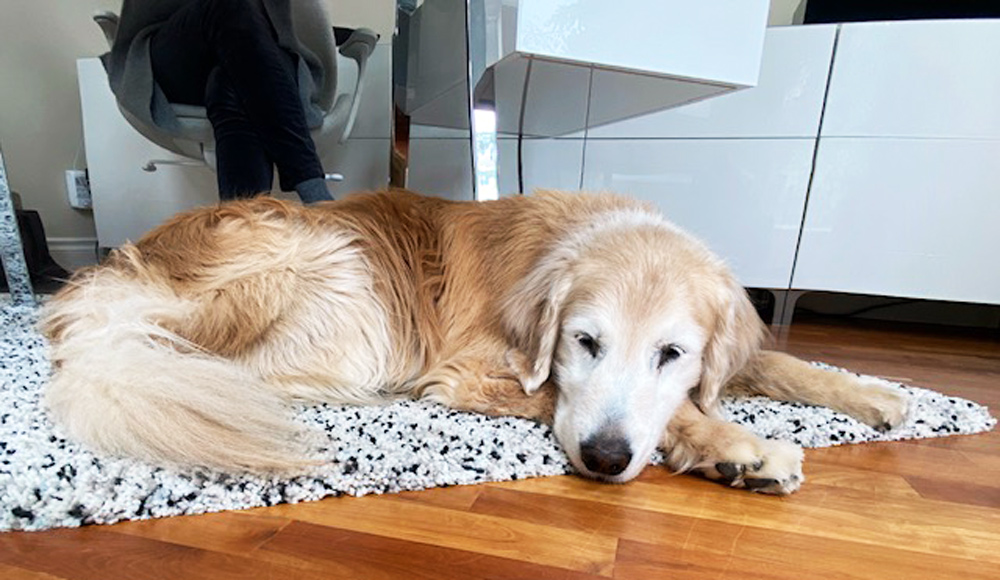
Pablo (aka Mr. P), Anthea Senior's very happy dog right now sleeping at her feet while she works.
Online learning is not new, but for dentistry and dental hygiene, having to substitute clinical experience is new territory and has presented our instructors with interesting challenges. Nothing can replace the simulated activities and clinical experiences, but, as for so many other changes we've had to embrace, our department is making the most of it, and even finding unexpected benefits of moving coursework online!
A few dentistry successes:
- Running exams; both an OSCE for Dental Hygiene, and a course final for Dentistry.
- Pulling together a panel of experts from the community of Obstructive Sleep Apnea.
- Using the tools to check in with students individually and socially.
- Throwing the box out the window and using all possible tools to increase interactivity and give students the best experience possible under the circumstances.
- Realizing there are some ways to use this experience to better future learning.
Alexandra Sheppard, Assistant Director of Dental Hygiene Clinical Education, looking on the bright side, has found quite a few benefits to the situation. She says, "I loved doing my case discussions online! Students talk about their patients, and normally they put up a presentation to the class, but it becomes more comfortable for the students, and we can all examine their numbers more closely and engage in a good discussion."
Additionally, without the clinical instruction, she has had more time to keep up with continuing education in the field, which has been of direct benefit to her students. "I learn and incorporate the information directly into my lectures. These are both aspects I'd like to maintain when we go back to normal."
Sally Lockwood, Associate Clinical Professor in the Dental Hygiene program, ran an Objective Structured Clinical Examination (OSCE) for her students. She and academic support Meghan Rannells used scheduled emails to send out the exam questions, Zoom breakout sessions into which the students were dropped each with a simulated patient and a grader for their 15 minutes.
Rannells says, "It's great to know it works and is an option, but the human element is diminished online: in person, the student is more present, and the grader can better see the human interaction. But at least we don't need to cancel the exams!"
For Associate Chair of DDS (Doctor of Dental Surgery) Clinical Education Anthea Senior, it's a different game. As Course Director for the current course in the Dentistry Curriculum Renewal project, she was supposed to be leading the first-ever run of her course in the new curriculum starting March 9th. Her students got four days of instruction as planned, before everything shifted.
"With the curriculum renewal, we made considerable efforts to have more lab and clinical experiences within the course — about 40% of it. Unfortunately, there are just some things you can't teach online."
Senior explains that her course was planned as a blended experience, so they had already developed videos of staff using the machines and demonstrating techniques, quizzes and anatomy flashcards, and unfolding cases where students can choose paths and see their decisions through.
She says, "In that regard, I was lucky, but it was a huge amount of work planning the curriculum over the past three years, and now we've had to re-plan everything in a week. However, the students have all been very patient and understanding."
Senior continues with gratitude, "Support from FoMD and our academic support group has been superb. Those teams have helped troubleshoot and provide clear instruction, and allowed us to concentrate on instructing."